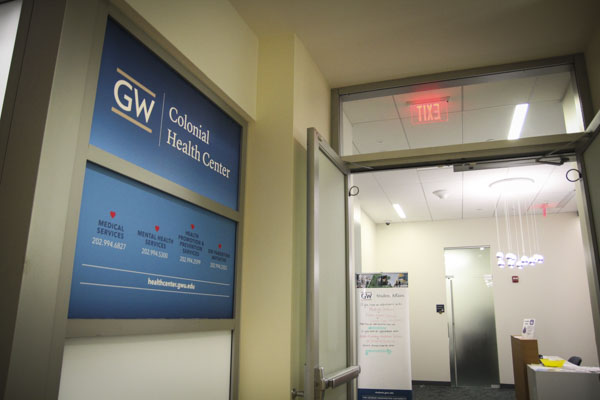Seven months after the former director of Mental Health Services stepped down, officials say there are no updates on filling the position.
Officials are continuing their search for a new director of Mental Health Services on campus and has no updates on the progress, University spokesman Kurtis Hiatt said in an email this week. Experts in the field said a search lasting this long isn’t common and could mean that officials are making structural changes to the program.
Hiatt declined to comment on who was conducting the search and when they plan to hire a new director.
The former director of Mental Health Services, Silvio Weisner, stepped down in September after officials discovered he was not a licensed psychologist or professional counselor in D.C. Five current and formal counselors filed formal complaints against Weisner for practicing unlicensed.
Officials said at the time of Weisner’s departure that they would begin a national search for a permanent replacement, but there have been no updates on that search.
Louise Douce, who served as the director of the Ohio State University’s counseling service for 23 years, said the process to hire a director typically takes two to four months. Douce said officials should be actively searching because there needs to be a permanent director to oversee all of the center’s counselors and to identify systemic issues.
“They should be in an active search at this point because you really need to have a director on board well before the fall semester starts,” Douce said.
There is currently no listing on GW’s jobs website for the director position.
Gillian Berry is serving as the interim director of Mental Health Services. She was previously an associate director at the center.
“When a school has two or three directors that only last two or three years, then that is worth a consultation to look at what is the working environment,” Douce said.
The director of the University Counseling Center before Weisner, John Dages, resigned in 2011 after former employees questioned his leadership. Barbara Brown, the associate director of the center, resigned two months later. Weisner was hired in 2012, almost a year after Dages stepped down.
Douce said when a search process takes this long, administrators could be considering structural changes to a center. She said the “basic elements” of a counseling center can function without a permanent director, but without a director, staff in the center cannot solve big picture problems.
“The oversight of policy and identifying problems and addressing problems and doing crisis intervention, those are the things that are probably scattered, and no one knows who is in charge of what,” Douce said. “Those are the things that are at risk to be without a director as long as you have been.”
Danielle Oakley, the director of mental health services at University of Wisconsin-Madison, said when she was hired, the process of applying, phone screening and on-campus interviews took about three months.
Oakley said a director has to be a leader who can advocate for the mental health needs for students on campus and can find a way to increase access for students to receive care. She added that it is important for a candidate to be a strong partner with other departments on campus to ensure faculty and staff throughout the university to prioritize mental health issues.
“My primary role is to communicate with the campus about mental health issues and to provide oversight for the services that are offered for students,” Oakley said.






